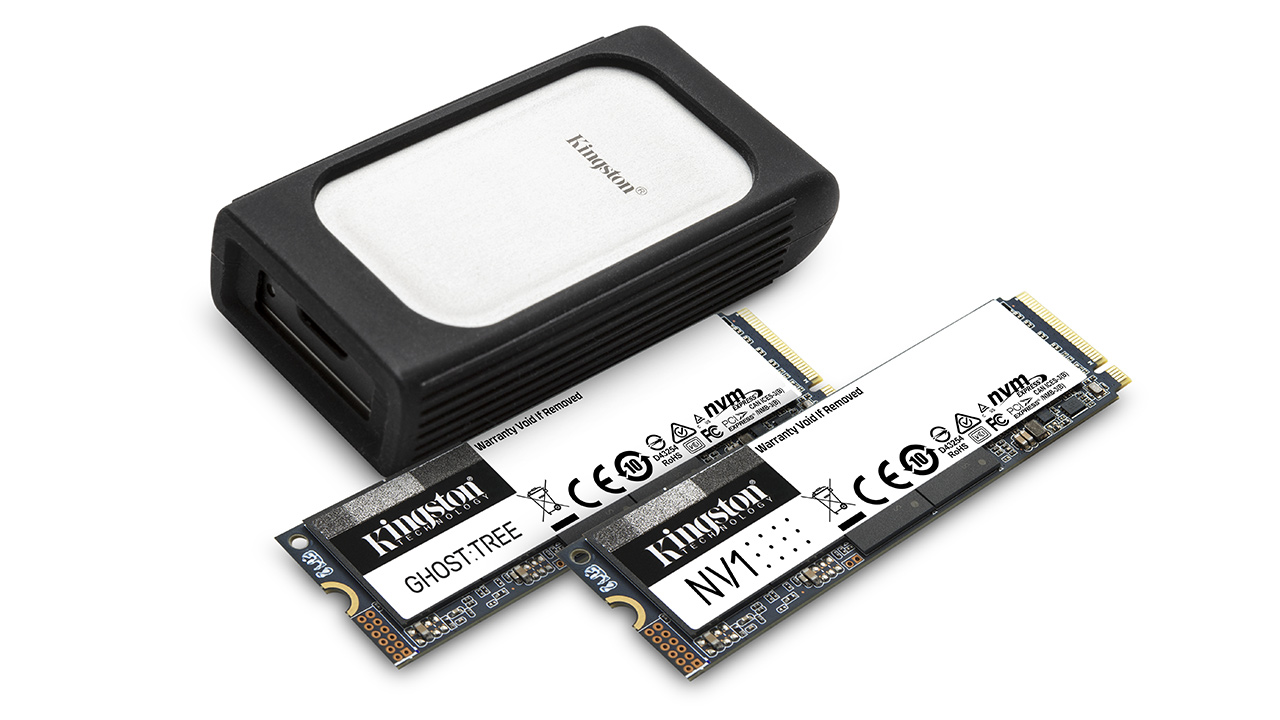Kingston, 7000 MB / s Gen. 4 SSDs and new NV Gen. 3 economic line are coming
Source: HW Upgrade added 12th Jan 2021
During the presentation at CES 2021, Kingston has announced the products that will soon arrive on the market. There are several lines of PCIe SSDs, including PCI Express 4.0, as well as more professional solutions. Here are all the details.
by Alessandro Bordin published 12 January 2021 , at 08: 41 in the Storage channel
Kingston
Kingston, in a fully digital presentation at the CES 2021 , showcases its NVMe SSD roadmap for the coming months. As a world leader in the production of memory chip storage solutions, it is interesting to understand the steps that are expected from this important company in the sector.
The intention is obviously to commit to maintain its leadership position in the SSD market thanks to new consumer drives and data center specific U.2 NVMe drives . New offerings include Kingston’s first PCIe NVMe Gen 4.0 SSD . Let’s see some details among those communicated.
“ Ghost Tree ” is the code name chosen for a series of PCIe Gen 4.0 SSD : Kingston aims for read and write speeds of 7000 MB / s using 8 channels, thus positioning this future top of range in the high performance section (in Gen 4.0 there are also those that go less, Ed). Capacities will range from 1TB to 4TB .
In the NV series will also arrive: they will be SSD Gen 3.0 x4 with capacities up to 2 TB , belonging to the entry-level range. All performances to be defined, as they could be all in all limited as in many Gen 3.0 x4 cheap, or high and aligned to the 3000 – 3400 MB / s read-write. We’ll see when they arrive.
XS 2000 : It will be a brand new USB 3.2 Gen 2 x2 external drive with capacity from 500 GB to 2TB high performance, in the name of Solid State memory used. The interface will be USB Type-C, which allows data transfers up to 2000 MB / s, but we don’t know the actual performance of XS 2000.
Last of the promised devices is DC 1500 M : we are talking about an SSD for data centers with U.2 interface which is an update of the previous CD 1000 M, with the addition of support for multi-namespaces. If the abbreviation DC 1500 M sounds strange to you as a replacement for the CD 1000 M, with inverted initials, the doubt is ours too. Maybe it’s a typo in the press release.
